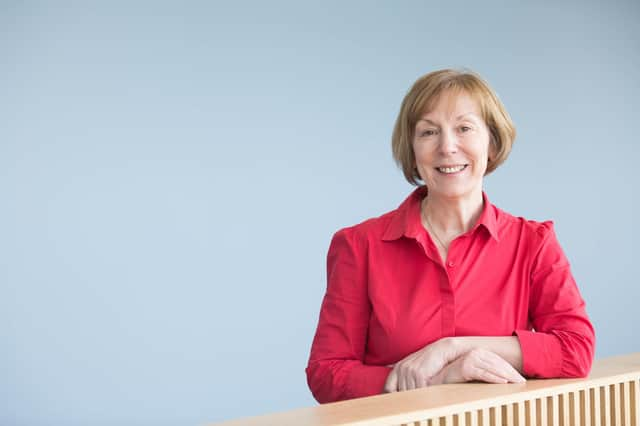Scottish survivor says families should be enabled to visit dying loved ones


Professor Helen Cheyne, of the University of Stirling, spent a week in intensive care – sedated and on a ventilator – after contracting meningococcal septicaemia in May 2019.
The Professor of Midwifery – now back at work after recovering from her illness – recalls her ordeal as part of a new blog, ‘COVID-19: Why are people dying alone’, for BMJ Global Health.
Advertisement
Hide AdAdvertisement
Hide AdThe blog is co-authored by nursing experts Clare Leon-Villapalos and Mary Wells, both of Imperial College Healthcare NHS Trust.
The authors say that patients dying alone “runs contrary to our cultural beliefs” but has become “the norm” in recent months.
They address whether it is “acceptable to normalise” dying alone during a pandemic, and consider how risks can be mitigated.
Reflecting on her own experience in intensive care, Professor Cheyne says: “I was sedated and on a ventilator for a week, after contracting sepsis.
“My sons were advised that my prognosis was poor.
“For much of that week, I experienced only vivid dreams.
“However, at some points, perhaps as I began to respond to medication, I was aware of my son’s voice repeating, ‘You’re not going to die’, over and over.
“Did that help me hold on to life? I don’t know, but through that week my sons were my advocates and my links to life – they talked to staff about me: I was mum, Helen, a professor, a runner, a hill-walker, a midwife. They made sure I was known as a person with a life to live and not just the sepsis in bay four.
“Ultimately, of course, I did not die but, at the time, I was considered likely to be at the end of life.
“Being aware of a known and loved person was the only reassurance I had as my life hung in the balance.”
Advertisement
Hide AdAdvertisement
Hide AdThe authors acknowledge that policies discouraging or disallowing visitors – except in exceptional circumstances – were introduced in the early stages of the outbreak, to avoid cross-infection.
They point out that end of life is considered an ‘exceptional circumstance’ in some – but not all – settings and it is not clear how this has been, or is being, enacted across all health and social care systems.
Patients in intensive care, or a care home, face dying without the companionship of those they love, the authors say, but – on the other hand – there is an infection risk to both visitors and staff.
These infection risks can be mitigated by advice, support, infection prevention and control measures and the provision of personal protective equipment.
They say that, in some cases, family members may be particularly vulnerable to infection, or in contact with others who are, and may choose not to visit – decisions should be informed, but ultimately sit with the individual.
“We contend that the human benefits of companionship at the end of life outweigh the risks,” the authors conclude. “Allowing visitors would reduce the emotional labour for exhausted staff, distressed by the pressures of communicating with distraught relatives and by the responsibility of being the only person present at the end of life.
“It would also allow the important opportunity to say goodbye. Video and phone calls have been used as a substitute during COVID-19, but the absence, and loss, of human touch cannot be underestimated.
“In the early stages of the pandemic, the focus of healthcare was necessarily on the immediate need to save lives and there were fears that the healthcare capacity would be overwhelmed.
Advertisement
Hide AdAdvertisement
Hide AdNow, recognising that COVID-19 will be part of the longer-term healthcare context, we must act to protect the mental health and wellbeing of patients, relatives and healthcare providers.”
The authors add: “We need now to remind ourselves to whom the patient ‘belongs’, to find ways through the decision-making and risks, resource these paths, and commit to supporting meaningful companionship at the end of life.”
Professor Cheyne is a Royal College of Midwives Professor of Midwifery, based at the Nursing, Midwifery and Allied Health Professions Research Unit at Stirling.
Her research interests include perinatal mental health and women’s experiences of maternity care.
As part of International Day of the Midwife 2020, Professor Cheyne was last week awarded a Royal College of Midwives fellowship.
Clare Leon-Villapalos is the Lead Nurse for Education in Critical Care at Imperial College Healthcare NHS Trust.
Her research interests include staff perceptions of safety and deployment in intensive care.
Mary Wells is the Lead Nurse for Research at Imperial College Healthcare NHS Trust and a Professor of Practice (Cancer Nursing) at Imperial College, London. Her research interests include cancer rehabilitation and survivorship and patients’ experiences of care.
Comments
Want to join the conversation? Please or to comment on this article.